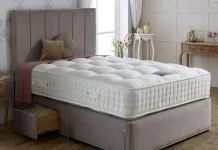Electricity is dangerous. If mishandled it can give you a nasty shock and, in approximately 20 cases every year, it can kill you. That’s why you should always proceed with caution if you’re dealing with electricity. It’s important to note that we’re not just talking about adding parts to your system or repairing the items you already have. Electricity is always dangerous and you should be taking the following 5 Essential Electrical Safety Tips for the sake of yourself and your family.
You should also be aware that Australia has some of the strictest laws regarding what electrical work you can do at home. Once you realize how limiting these regulations are you’re going to need to become friendly with a local and reputable Sydney electrician. There are actually a few repairs you can, or should, be undertaking yourself.
- Unplug First
If you do notice an issue with an appliance or any electrical circuit you’ll probably want to look at the problem first to decide whether you can fix it or you need professional help.
However, before you touch anything that is potentially unsafe, you need to shut the power off. That doesn’t mean turning a light switch off, or the socket off. It means switching off the circuit breaker for the circuit you’re looking at. If you’re not sure which one this is you’ll need to shut off the entire power supply.
Of course, if this is the case you’ll want to individually check each circuit breaker and make sure you identify each of the circuits. It will make it easier to isolate the supply or an issue in the future.
- Replace damaged Cords
Damaged cords happen, especially on appliances that are moved regularly, such as the iron. But, even the static cord for your television can be damaged. Heat or pests can cause the internal wires to be exposed. If you touch them you will get an electrical shock.
Alternatively, the internal wires can touch each other and cause a short circuit. This can shut the power off on the circuit or, in some cases, start a fire.
As soon as you note a cord is damaged you need to stop using the appliance and replace it. You should note that this is not technically something you should be doing yourself, it’s against the government-issued regulations.
- Don’t Use extension Cords If Possible
Extension cords are one of the biggest fire risks in your home. They extend the distance electricity has to flow and, in many cases, they are longer than they need to be. This results in a coil of cable being sat on the floor. As electricity flows through the cable it generates heat. When the cable is coiled the heat is compounded, quickly reaching the point where it can melt the protective coating and start fires.
It’s best to avoid using extensions around the home, save them for where they belong, with your electrical lawnmower and strimmer.
- Electricity & Water Don’t Mix
You probably already know that water and electricity are a bad combination. Water is actually a very good conductor, that’s the problem. If the electricity comes into contact with the water it will flow through it and anyone in contact with the water will get an electric shock.
That’s why there are strict rules regarding how close electrical outlets can be to water sources. As well as ensuring your plumbing adheres to these standards, you should be alert concerning wet hands and any other ways in which water can come into contact with electricity.
Avoiding the two meeting is the safest and easiest way to avoid electrical shocks at home.
- Safety Covers Are Essential If You Have Children
Finally, if you have young children you’ll know they have a tendency to push things into other items. It can be very tempting for a young child to try to push something into an electrical outlet. Of course, if they do, the results can be disastrous.
It’s not likely to be possible to place all the sockets too high for your young child to reach. Instead, invest in socket safety covers that slot into the plug points and prevent your child from inserting anything.
They’re easy to use and make the place safer for your child while giving you peace of mind.
Final Thoughts
Electricity should always be treated with respect and the sooner you teach your children the same approach the better. Although it can be seen as simply a few wires connecting to each other, the system is generally more complex than this. The best approach, when dealing with an electrical issue, is simply to get the professionals involved. They are trained, have the right equipment, knowledge, and insurance to deal with the issue safely for you.
S well as usually being the most cost-effective solution, it’s also the safest approach








